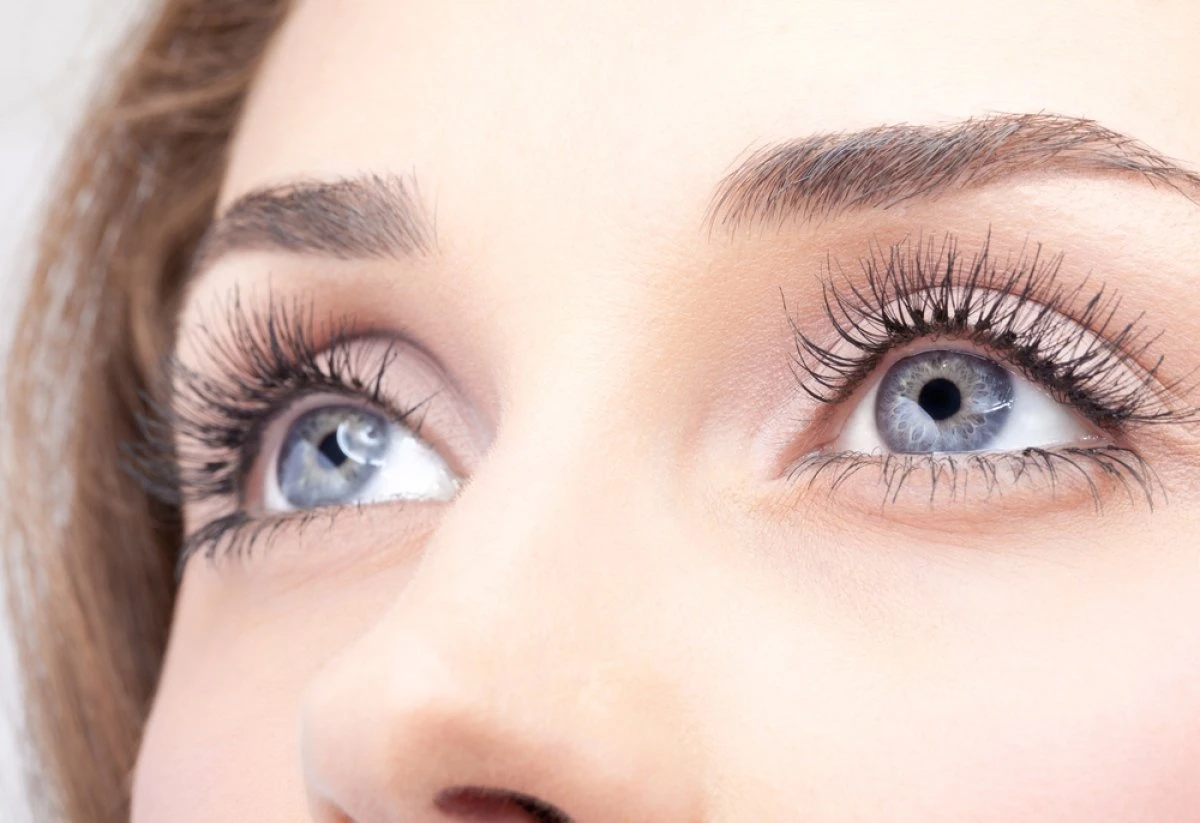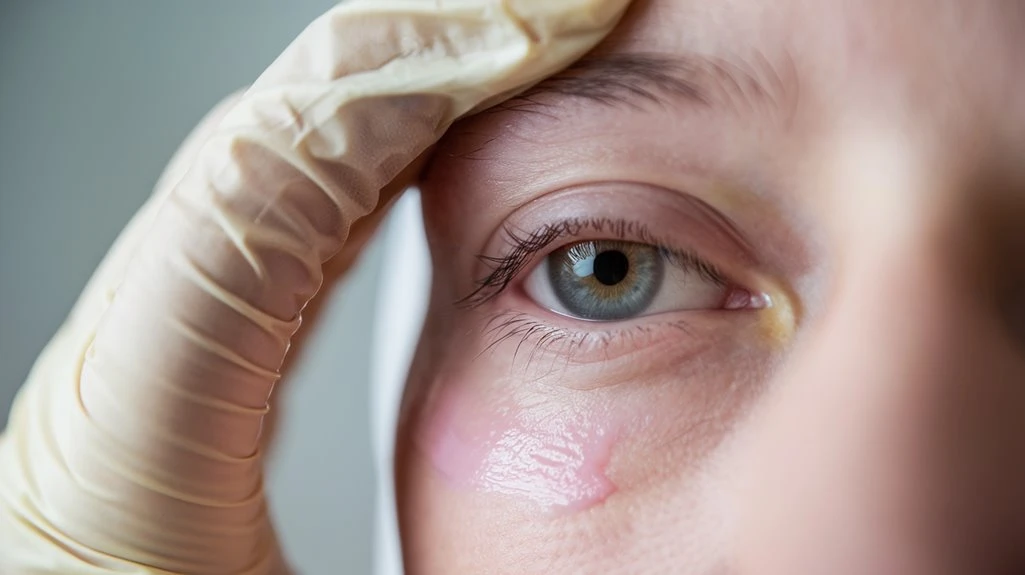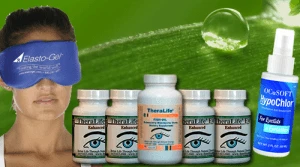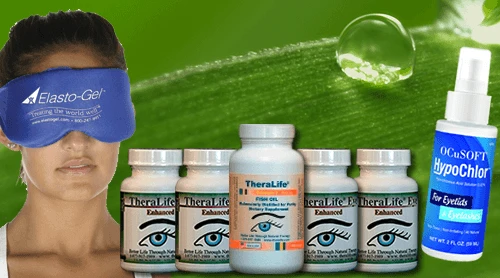To effectively manage post-surgery blepharitis and enhance recovery, consider incorporating TheraLife’s range of products into your eye care routine. TheraLife offers all-natural solutions specifically designed to address eye conditions like blepharitis, dry eyes, and other related issues. These products emphasize maintaining eyelid hygiene, reducing inflammation, and providing relief from symptoms such as redness, swelling, and itching.
TheraLife’s comprehensive approach includes oral capsules that promote internal healing and enhance tear production, which can be more effective than topical treatments alone. This internal support is crucial for preventing conditions like blepharitis from recurring. In addition to their capsules, TheraLife advises using sterile solutions for eyelid hygiene and avoiding potentially irritating substances such as contaminated eye makeup.
TheraLife’s commitment to natural and scientifically-backed solutions can help you maintain optimal eye health post-surgery. Their products are designed to work synergistically, reducing the need for prescription medications and offering a holistic approach to eye care. For any unusual symptoms or vision changes, it is always recommended to seek professional medical advice, but integrating TheraLife’s products into your daily routine can significantly support your recovery journey.
Best Blepharitis Treatment From TheraLife- When Drops Don’t Work.
Key Takeaways
- Clean eyelids with a sterile solution twice daily to prevent infection.
- Avoid using contaminated eye makeup during recovery to reduce irritation.
- Apply prescribed ointment and preservative-free artificial tears as directed.
- Use a clean cold compress several times daily to alleviate discomfort.
- Attend all follow-up appointments to monitor healing and address issues.
Understanding Post-Surgery Blepharitis
After undergoing eye surgery, it’s vital to understand the possibility of developing post-surgery blepharitis. This condition, characterized by eyelid inflammation, can arise due to various factors, including inadequate postoperative hygiene.
To mitigate this risk, you should adhere to strict cleanliness protocols. Thoroughly cleanse your eyelids, using sterile wipes or prescribed solutions, to prevent bacterial build-up, which can exacerbate inflammation. Contaminated eye makeup can lead to worsening symptoms, so avoiding its use during recovery is crucial.
In addition to cleansing, make sure that you’re following any medication regimen prescribed by your healthcare provider to control inflammation effectively.
It’s important to maintain a clean and sterile environment around your eyes, particularly in the initial healing phase, to reduce the likelihood of complications. Being diligent with postoperative hygiene can greatly decrease the chances of developing this uncomfortable condition.
Recognizing the Symptoms of Blepharitis
Maintaining proper hygiene is just one part of managing post-surgery blepharitis.
Recognizing the symptoms early can help you in identifying triggers and preventing flare-ups. Be on the lookout for these common symptoms:
- Redness and Swelling: Your eyelids may appear red or swollen due to inflammation.
- Itching and Irritation: Persistent itching and a gritty sensation in the eyes are common.
- Crusting and Flaking: Notice any crusting at the base of your eyelashes, especially upon waking.
- Light Sensitivity: Increased sensitivity to light might occur, causing discomfort.
- Since blepharitis affects the base of the eyelashes, paying attention to eyelid hygiene can significantly aid in preventing flare-ups and managing symptoms.
Essential Post-Surgery Eye Care Tips
Caring for your eyes after surgery is essential to guarantee ideal recovery and prevent complications. Prioritize eye hygiene to reduce the risk of infection. Clean your eyes gently with a sterile solution, and follow your doctor’s instructions to avoid irritation. Your recovery timeline is significant; understanding each phase helps you monitor progress. Consistent eye care, such as using Avenova eyelid cleanser post-compress, is crucial for managing eyelid hygiene and preventing flare-ups.
| Task | Frequency | Purpose |
|---|---|---|
| Clean with sterile solution | Twice daily | Prevent infection |
| Apply prescribed ointment | As directed | Promote healing |
| Avoid rubbing eyes | Always | Prevent irritation |
| Follow-up appointments | As scheduled | Monitor recovery timeline |
Adhering to these essential care tips guarantees your eyes heal properly, reducing the risk of post-surgery complications. Keep track of your recovery timeline and consult your healthcare provider for any concerns.
Managing Discomfort and Redness
Experiencing discomfort and redness after eye surgery can be expected, but there are effective strategies to manage these symptoms. Prioritize eye hygiene and consider using natural remedies to alleviate issues. Here’s a concise plan:
- Cold Compress: Apply a clean, cold compress to reduce swelling and redness. Do this for 10-15 minutes several times a day.
- Clean Eyelids: Maintain eye hygiene by gently cleaning your eyelids with a sterile solution or warm water. This helps prevent infection and soothes irritation.
- Artificial Tears: Use preservative-free artificial tears to keep your eyes lubricated, minimizing dryness and discomfort.
- Herbal Solutions: Consider natural remedies like chamomile tea bags for their anti-inflammatory properties. Place cooled tea bags over closed eyes for relief.
Additionally, proper balance of all three layers in the tear film is crucial to prevent dry eye and promote healing. These steps promote recovery, ensuring your eyes heal comfortably.
When to Seek Professional Medical Advice
How can you determine when it’s time to seek professional medical advice after eye surgery? Monitoring your recovery is essential, as post surgery risks can arise unexpectedly.
If you experience persistent pain, increased redness, or unusual discharge, it’s important to consult your ophthalmologist promptly. Vision changes, such as blurriness or loss, also warrant immediate medical attention. These symptoms might indicate complications that require professional evaluation.
Consider using Omega-3 Fish Oil Benefits to support retinal health and aid in preventing conditions like macular degeneration and cataracts during your recovery.
Follow-up appointments are critical for tracking your healing process. During these visits, your doctor can identify potential issues early and adjust your treatment plan if necessary.
Don’t ignore any signs that seem off. Trust your instincts and prioritize your eye health by seeking timely medical advice, ensuring the best recovery and minimizing risks associated with your procedure.
Best Blepharitis Treatment From TheraLife- When Drops Don’t Work.
Frequently Asked Questions
Can Certain Foods Exacerbate Post-Surgery Blepharitis Symptoms?
Yes, certain foods can worsen blepharitis symptoms after surgery. You should identify dietary triggers that might increase inflammation, such as spicy foods, alcohol, and high-sugar items.
These can exacerbate your symptoms and delay healing. Focus on inflammation reduction by incorporating foods rich in omega-3 fatty acids, like fish and flaxseeds, which promote eye health.
Staying hydrated and maintaining a balanced diet will support your recovery and help manage symptoms effectively.
Are There Any Specific Exercises to Avoid Post-Surgery?
Just like you wouldn’t put the cart before the horse, it’s essential to avoid certain activities post-surgery.
Eye exercises and strenuous physical activities should be on your no-go list. Engaging in these could increase strain and hinder healing.
Instead, focus on resting your eyes and following your doctor’s guidelines to guarantee ideal recovery. By doing so, you’re giving your eyes the best chance to heal properly and effectively.
How Long Should I Avoid Wearing Makeup After Surgery?
You should typically avoid makeup application for at least two weeks post-surgery.
This timeframe helps reduce the risk of irritation and infection due to eye sensitivity. Your eyes need this period to heal properly without additional stress from cosmetics.
Always consult your surgeon for personalized advice, as healing times can vary.
When you resume using makeup, make certain all products are clean and hypoallergenic to prevent complications.
Can Stress Impact the Healing Process of Post-Surgery Blepharitis?
Did you know that stress can slow down the healing process by up to 25%?
Managing stress is essential for healing post-surgery blepharitis effectively. Implement stress management techniques like deep breathing or meditation to improve recovery.
Incorporate healing techniques such as warm compresses and proper eyelid hygiene. These methods not only promote faster healing but also reduce discomfort.
Stay calm, follow your care routine, and you’ll enhance your recovery journey.
Is It Safe to Swim After Eye Surgery?
It’s not safe to swim immediately after eye surgery.
Swimming precautions are essential to prevent eye infection. The water, especially in pools, lakes, or oceans, can harbor bacteria that might enter your eyes.
You should avoid swimming until your doctor confirms it’s safe, usually after several weeks.
Always follow your surgeon’s post-operative care instructions to guarantee proper healing and minimize risks.
Consult your healthcare provider for personalized advice.
Best Blepharitis Treatment From TheraLife- When Drops Don’t Work.
In managing post-surgery blepharitis, theralife.com offers a range of products designed to alleviate symptoms and promote eye health. Their comprehensive solutions address discomfort and redness, helping you maintain clear vision. If you’re experiencing persistent issues, it’s crucial to consult a healthcare provider. With TheraLife’s targeted products, you can enhance your recovery process, ensuring a smooth transition back to optimal eye health. By following their guidance, you can effectively manage your condition and enjoy clear vision once again.





